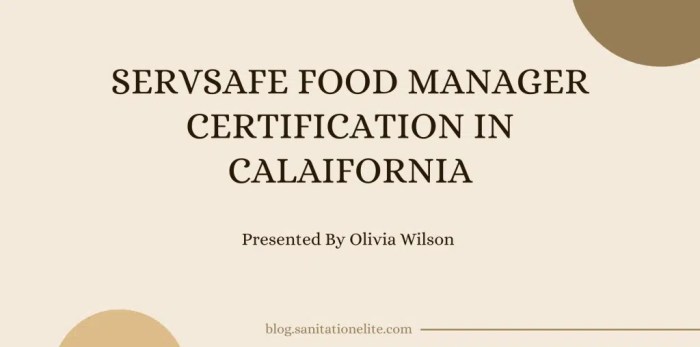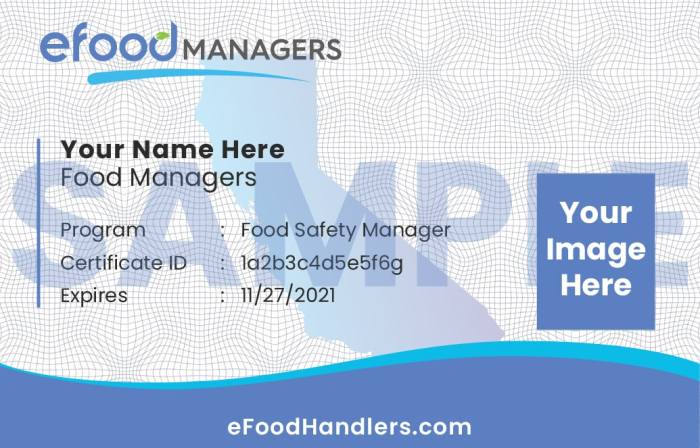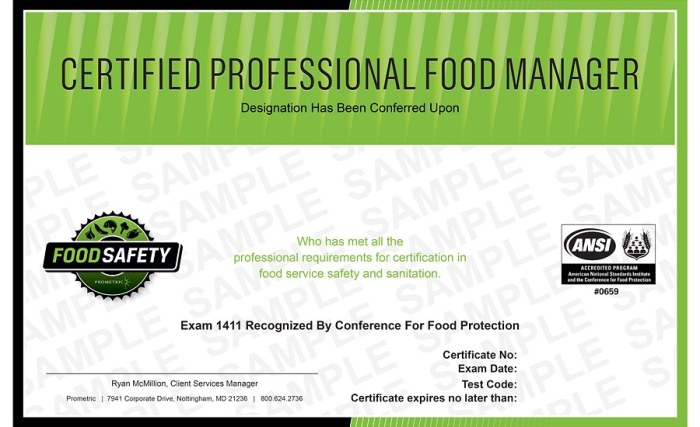Food manager certification ä¸æ–‡ 考试 is a crucial aspect of the food industry, empowering individuals with the knowledge and skills to maintain food safety and prevent foodborne illness. This certification encompasses various levels and offers significant benefits, ensuring that food managers are well-equipped to fulfill their responsibilities.
Food safety regulations and standards form the foundation of food manager certification, guiding food managers in adhering to essential guidelines and practices. By understanding these regulations, food managers play a vital role in safeguarding public health and preventing the spread of foodborne illnesses.
Overview of Food Manager Certification

Food manager certification is a credential that demonstrates an individual’s knowledge and skills in food safety management. It is essential for food managers to obtain certification to ensure the safety of food served to consumers.
There are different levels of food manager certification available, each with its own requirements and scope of knowledge. The most common level is the ServSafe Food Manager Certification, which is recognized by most health departments in the United States.
The benefits of obtaining food manager certification include improved food safety practices, reduced risk of foodborne illness outbreaks, and increased customer confidence.
Food Safety Regulations and Standards
Food managers must comply with a variety of food safety regulations and standards, including the Food and Drug Administration (FDA) Food Code and the National Restaurant Association’s ServSafe program.
These regulations and standards Artikel the requirements for food safety, including proper food handling, storage, and preparation practices. Food managers are responsible for ensuring that their establishments comply with these regulations and standards.
Non-compliance with food safety regulations can result in serious consequences, including fines, closures, and criminal charges.
Foodborne Illness Prevention: Food Manager Certification ä¸æ–‡ 考试

Foodborne illness is a major public health concern, and food managers play a critical role in preventing its occurrence. Common causes of foodborne illness include bacteria, viruses, and parasites.
Food managers can prevent foodborne illness by following proper food handling and storage practices, including:
- Washing hands frequently
- Cooking food to the proper temperature
- Storing food at the correct temperature
- Preventing cross-contamination
Food Safety Management Systems

Food safety management systems (FSMSs) are frameworks that help food businesses manage food safety risks. FSMSs are based on the principles of Hazard Analysis and Critical Control Points (HACCP).
There are different types of FSMSs available, including the International Food Standard (IFS), the British Retail Consortium (BRC) Global Food Safety Standard, and the Safe Quality Food (SQF) Program.
Implementing a FSMS can help food businesses improve food safety, reduce the risk of foodborne illness, and meet customer expectations.
Food Manager Training and Education

Food managers can obtain certification through a variety of training and education programs. These programs typically cover topics such as food safety regulations, foodborne illness prevention, and food safety management systems.
Ongoing food safety training is essential for food managers to stay up-to-date on the latest food safety practices and regulations. Food safety professionals can provide food manager training through a variety of methods, including online courses, workshops, and seminars.
Common Queries
What are the benefits of obtaining food manager certification?
Food manager certification provides numerous benefits, including enhanced knowledge of food safety regulations, improved food handling and storage practices, reduced risk of foodborne illness outbreaks, increased consumer confidence, and potential career advancement opportunities.
What are the different types of food safety management systems available?
Common food safety management systems include Hazard Analysis and Critical Control Points (HACCP), ISO 22000, and Good Manufacturing Practices (GMPs). Each system provides a structured approach to identifying and controlling food safety hazards.